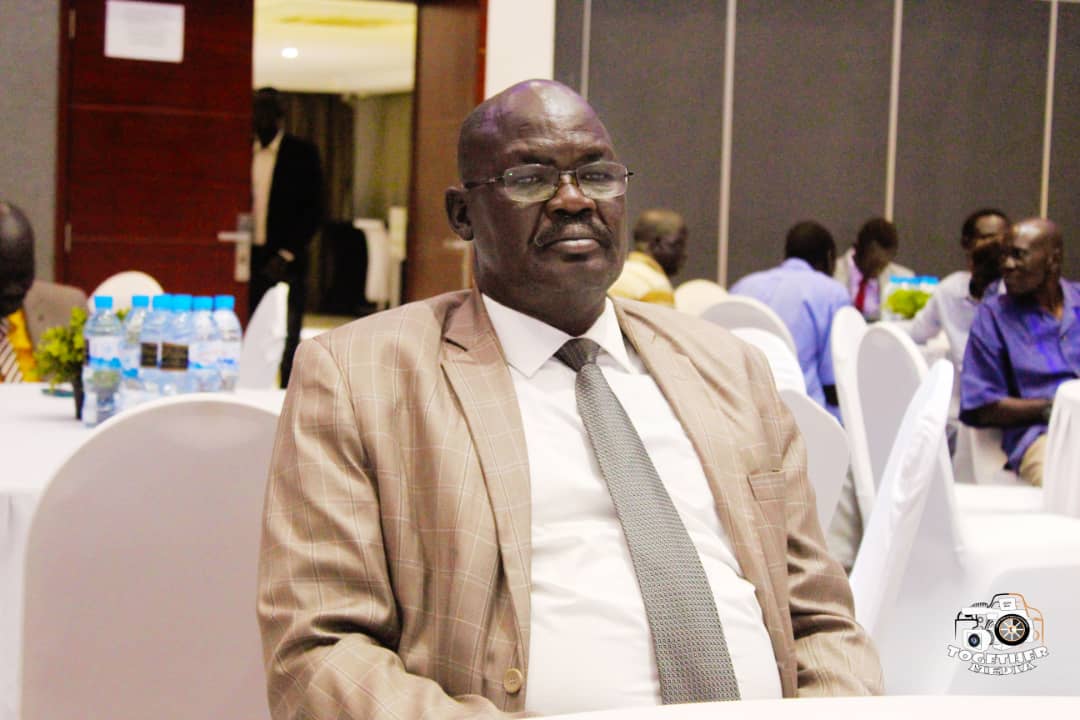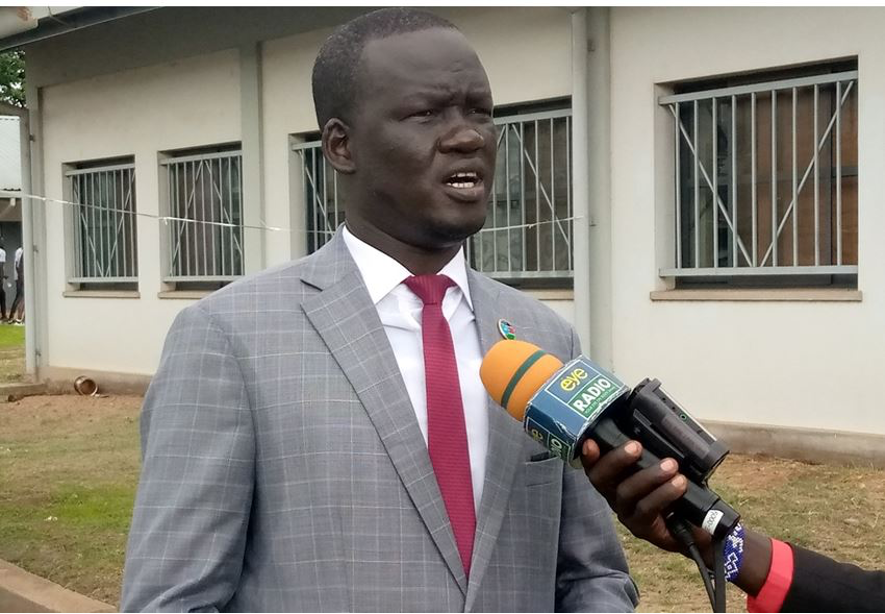
Government says peace implementation progressing despite challenges

The South Sudan government on Tuesday said it has made encouraging progress in the implementation of the 2018 revitalized peace agreement, despite enormous challenges as it seeks to hold the upcoming general election in December 2024.
Michael Makuei Lueth, the minister of information, communication, technology and postal services, said that whilst the implementation of the peace agreement might be slow, the government has maintained peace and security across the country with the exception of a few hotspots largely characterized by communal violence, cattle rustling and robbery.
“Despite the challenges that are directly related to our internal conflicts and weak institutions, the government continue to make steady progress in the implementation of the revitalized agreement on the resolution of the conflict in South Sudan,” Makuei said during press conference held in Juba.
“Now that the electoral and constitutional –making bodies are restructured and reconstituted, the government is fully committed to take the country for elections in December 2024 so that our people can elect leaders of their choice,” he disclosed.
Makuei noted that six army battalions have now been deployed between November and December, 2023 to take care of the security situation in some of the hotspots around Malakal, Maridi, Renk, Wau and Torit.
He also noted that preparations are at advanced stage for the deployment of the remaining phase 1 forces to areas that are identified as insecure, adding that arrangements for the cantonment and training of phase 2 of the remaining Necessary Unified Forces are nearly completed.
“The deployment of the Necessary Unified Police Force and other organized forces is in progress. With the deployment of these forces the government will be in a stronger position to fully control it’s civilian population and protect their properties throughout the country. That is what the government aims to do in order to make South Sudan a conventional nation state,” Makuei said.
He said that the government is working closely with the United Nations/United Nations Mission in South Sudan (UNMISS), African Union (AU), Inter-Governmental Authority on Development (IGAD) and the organs created by the revitalized peace agreement to ensure a smooth transition toward democratic governance.
“With the UN Security Council we are implementing and responding to the five benchmarks imposed on South Sudan under paragraph 18 of the UNSC Resolution 2683(2023) on arms embargo and sanctions. The meetings have gone well so far and our relationship with the UN has been cordial. We hope that sooner rather than later the UN will find space to lift the arms embargo, as well as the sanctions on South Sudan so that the government can now arm it’s newly deployed Necessary Unified Forces,” Makuei said.
The Chairperson of the Reconstituted Joint Monitoring and Evaluation Commission (RJMEC), Charles Tai Gituai on Tuesday while addressing the 1202nd meeting of the African Union Peace and Security Council (AUPSC), said that much work remains to be done to complete the pending tasks within the peace agreement to pave way for the conduct of free, fair and credible elections.
Gituai said that pending tasks include funding and operationalization of the elections-related institutions responsible for preparation and conduct of elections and the making of the permanent constitution, whose provisions of will guide the conduct of elections.
He also noted that other key pending tasks include judicial reforms to enhance the capacity and independence of judicial institutions, completion of Phase I and II unification of forces and the expansion of political and civic space to enhance public participation in constitution and election processes.
“This five-year period of the agreement marks the longest period of relative peace, inclusivity and stability since independence in 2011. The gains made in this period are significant, considering the previous security situation in the country. It is therefore important to consolidate and protect these achievements,” Gituai said.
However, Gituai said that on evidence of his recent engagement with the parties to the 2018 revitalized peace agreement, they are yet to arrive on consensus on the conduct of the upcoming elections scheduled for December this year.
He called called on the AUPSC to support the revitalized transitional government to deliver credible elections within the framework of the peace agreement, and encourage the parties to dialogue in order to build the consensus and compromise as necessary to hold free, fair and credible elections.
The Special Representative of the Secretary General and head of UNMISS, Nicolas Haysom told the AUSPC that it is increasingly clear that the South Sudanese and their leaders want elections, adding that there is, however, widespread ambivalence about the adequacy of preparedness of electoral institutions and processes, as well as the security environment to endure a robust political competition without a relapse into conflict.
He disclosed that the inter-communal violence is the biggest risk to conducting an election without violence.
“During a meeting with senior officials of the United Nations last week, the minister of interior, with related comments by the minister of information, stated that they have now classified inter-communal violence as a national security threat,” Haysom said.
He added that the implementation of the transitional security arrangements and the other pending tasks including the deployment of the Necessary Unified Forces remains a cornerstone for peace before, during and after the elections.
Haysom also noted that the Trilateral mechanism does not seek to impose foreign standards or external milestones on the parties.
“We do not encourage or insist on UN or AU charters. All we are asking for is the implementation of the measures agreed upon by the parties themselves with each other—including those provisions which allow them to amend the current provisions of the peace agreement. This will allow for adequate steps be taken to ensure the country is properly prepared for elections. But, failing to implement those provisions not only undermines the prospect for credible and peaceful elections, but will simultaneously undermine the peace agreement itself, even threatening its survival,” he said.
He said that the Horn of Africa, would be devastated if it were required to endure two wars at the same time in Sudan and South Sudan, adding that the UN, AU, IGAD and the government are required to take all steps to avoid this possibility.
“The government must be encouraged to increase momentum towards democratic elections as agreed and sought by South Sudanese. It must do so by simply taking the political decisions which are required of it and backing them with financial resources,” Haysom said.




































